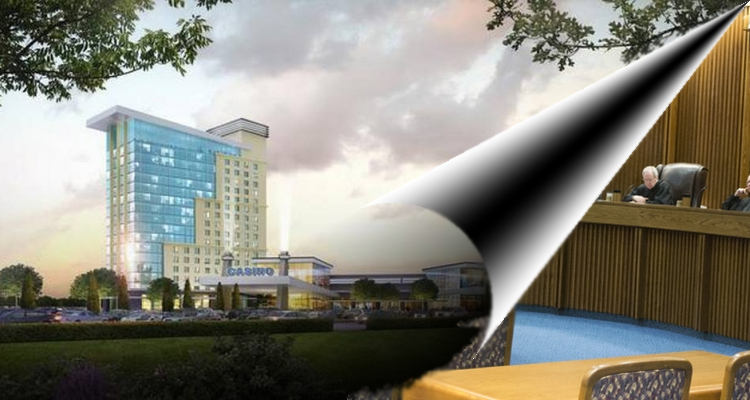A group of Wichita based investors led by brothers Brandon and Rodney Steven saw their casino hopes dashed by the Kansas Supreme Court as the Justices rejected their appeal on Friday.
In late January the court heard oral arguments in the case where counsel for Cherokee County officials and the Steven brothers argued that District Court Judge Larry D. Hendricks erred in upholding the state lottery board’s earlier decision to grant the final casino license in the state to Kansas Crossing, rather than their Castle Rock development. They stated that the judge should have sought more information and held further hearings before siding with the Board.
Pitched for Cherokee county near the border of Oklahoma and Missouri, the $145 million proposal could have possibly brought in a lot more money for the state. However, the lottery board chose the much smaller Kansas Crossing Casino & Hotel south of Pittsburg that was built for about $70 million. Kansas Crossing opened in sneak peaks and phases with a soft opening on March 31 and a grand opening on April 8.
In 2015 the lottery board hired consultants to look at the proposals and the board interpreted the findings to say that Castle Rock’s financial projections were not as strong as the smaller Kansas Crossing. The Castle Rock group was only given 3 days to prepare a rebuttal, which they did with over 100 pages citing five independent studies.
Castle Rock and the county appealed the decision in district court but in April 2016 the judge ruled that the board’s decision was not unreasonable. The group appealed that decision as well complaining that they were not given the power of discovery by the court and that the board’s original decision was not based on sufficient evidence.
In their ruling Friday the Supreme Court determined that none of Castle Rock’s contentions rose to the law, stating:
“We hold that the district court acted within its broad discretion when it denied appellants’ multiple discovery requests. We further determine that the district court correctly held that the Board’s decision to select Kansas Crossing was supported by sufficient evidence; was not error as a matter of law; and was not arbitrary or capricious.”



